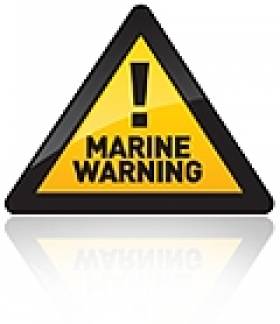Displaying items by tag: 999
Tit Bonhomme 999 Concerns Will Be Considered Says Varadkar
#TitBonhomme - Transport Minister Leo Varadkar says he will consider concerns over the handling of emergency calls relating to the Tit Bonhomme tragedy, as The Irish Times reports.
The minister commented after a meeting last week with the widow of the stricken boat's skipper Michael Hayes in Union Hall in West Cork.
Hayes and four of his five-man crew lost their lives when the trawler went down after striking rocks at the mouth of Glandore Harbour. The only survivor was Egyptian fisherman Abdelbaky Mohamed, who was able to swim to shore.
The recent inquest into the incident criticised the handling of 999 emergency calls from the fishing boat prior to its sinking, as it emerged that neither the Irish Coast Guard nor the Marine Casualty Investigation Board were aware that not one but two calls were made by crewman Kevin Kershaw.
It emerged during the inquest that the coastguard was only notified of the event on the second call, three minutes after the first.
Barrister Elizabeth O'Connel, who represented Hayes' widow Caitlín Uí Aodha at the inquest, described the dearth of details taken by the operator on the first call as "extraordinary".
Ireland's emergency call service, operated by BT Ireland from three locations, is currently under review by the Department of Communications.
The Irish Times has more on the story HERE.
Coast Guard Advises Caution in Severe Weather
The Irish Coast Guard has advised members of the public to take care in the current severe weather conditions, particularly around the coast and in exposed areas.
Sea Activities
Avoid sea or water-based activities today if possible.
Cliff Walking
There is safety in numbers. Always let someone know when and where you are going, and when you are expected to return. Stay well away from cliff edges, both top and bottom. Don't attempt to rescue people or pets if they fell over a cliff edge. If assistance is needed dial 999 or 112 and ask for the Coast Guard.

























































